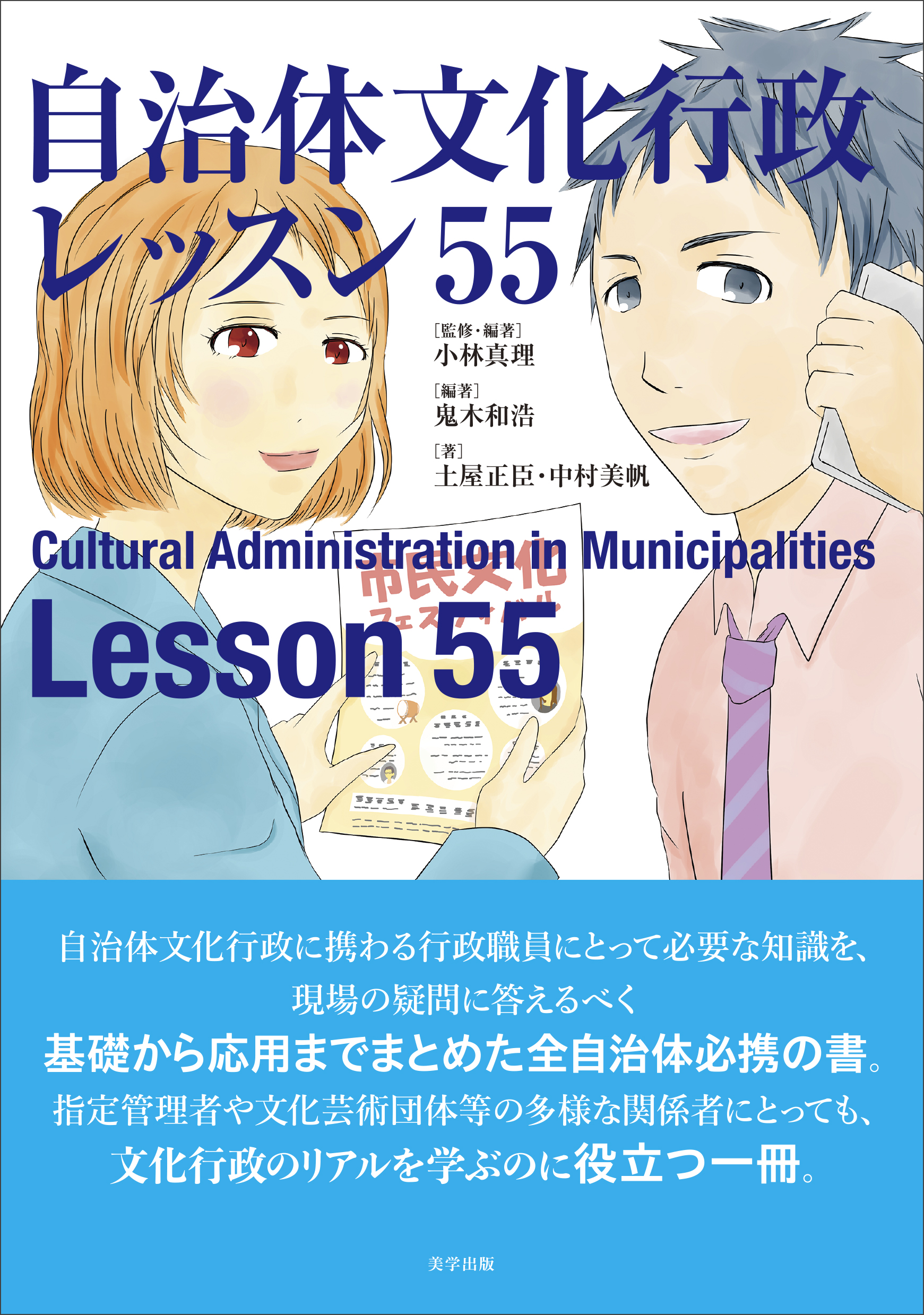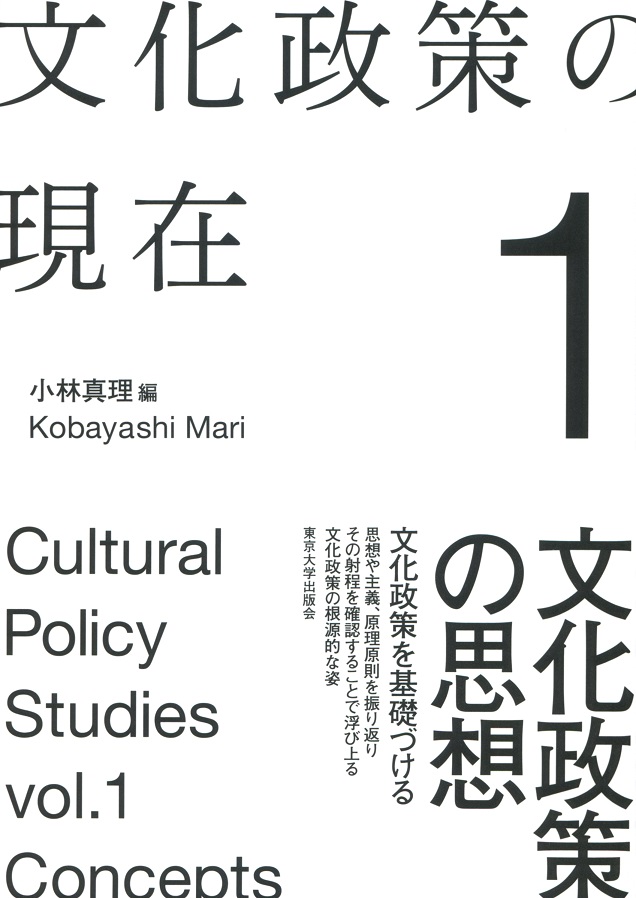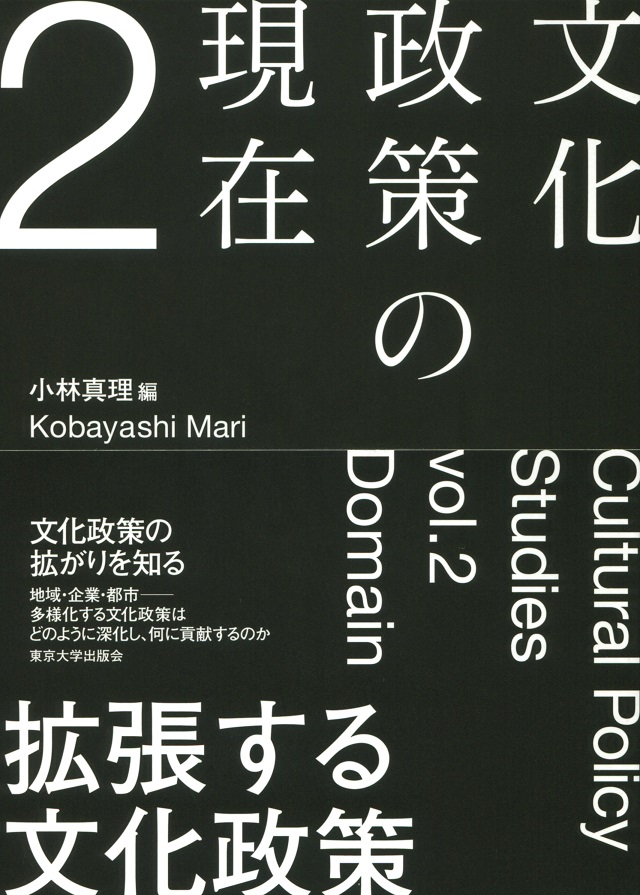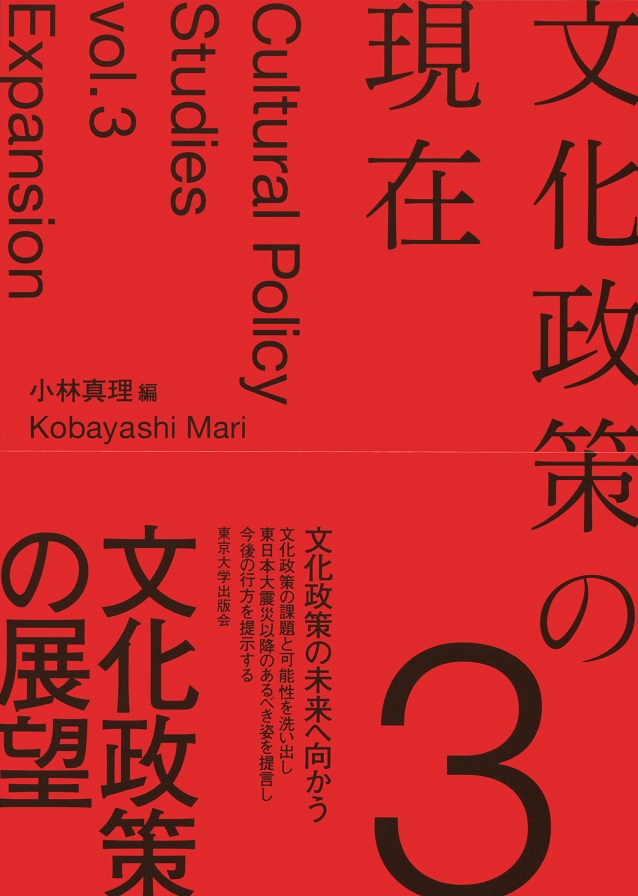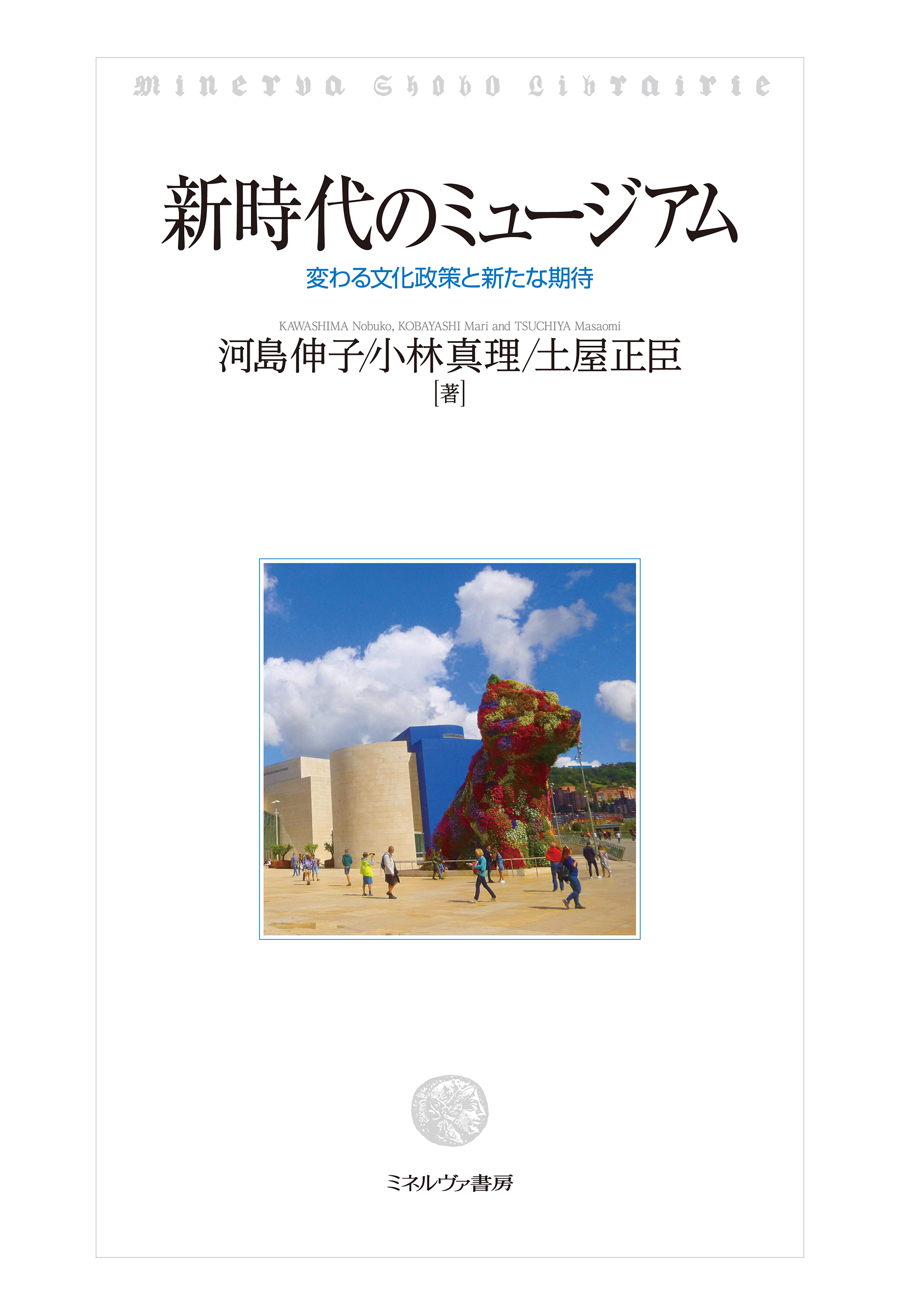
Title
Ho kara Manabu Bunka Seisaku (Cultural Policy and the Law)
Size
316 pages, 127x188mm, softcover
Language
Japanese
Released
December, 2021
ISBN
978-4-641-12630-5
Published by
Yuhikaku Publishing Co., Ltd.
Book Info
See Book Availability at Library
Japanese Page
More than 20 years have passed since cultural policy as a public policy was institutionalized. Stakeholders involved in cultural policy range from national and local government administration in charge of cultural promotion and protection of cultural properties, as well as culture-arts-related organizations, arts organizations, and intermediary support groups. We wrote it with the intention that those people would read the law correctly and use it. The intention of the authors is to make you think about where each legal field fits in the broader sense of cultural development.
In the background of creating such a book, we intended to in developing diverse and rich culture in Japan, including for profit and non-profit, while appropriately allocating limited resources and making full use of the potential of stakeholders. This is because I thought it was important to take the perspective of utilizing the law in order to move toward the goal. In thinking about this, we tried to think about the areas covered by laws related to culture. When culture develops, there will be someone who "creates" something and has the role of "sending" it, someone who "receives" it, and someone who has the role of "leave to the future(cultural heritage)" it. Seeing and experiencing cultural heritages will inspire you and lead to new “creations.” We thought that the circulation of these effectively would lead to the development of culture. We aim to clarify where the current laws related to culture are positioned, and what the public administrations should be responsible for in the laws and what the people who are active should be responsible for.
In this book, we will look at the law based on culture. Laws that most people are familiar with are civil law and criminal law. Many of the laws dealt with here are positioned in the field of administrative law, and you may not have seen or heard much about them. In the field of administrative law research, the illegal exercise of administrative power can damage the rights and interests of citizens, and research has been conducted from the perspective of judicial norms to protect them. It is also important to look at cultural policy from this perspective. However, in addition to the fact that culture bearers are active in various fields in society, public policy also includes the field of market development. The word market may be limited to places where commercial enterprises are active, but that is not the case. Some local governments are focusing on cultural administration to correct disparities in various areas. There is a way of thinking that administrative law is positioned as a law to move administrative organizations, control society through them, and achieve certain goals. Alongside the image of the law, policies are also changing. If you think that policy is to induce profits for politicians, that is an outdated way of thinking. In order to create a better cultural environment, there are things that the government and the private sector must think about together. We thought it would be the first step for that.
(Written by KOBAYASHI Mari, Professor, Graduate School of Humanities and Sociology / 2023)



 Find a book
Find a book


 eBook
eBook